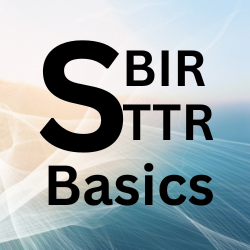Why You Must Track Hours—Not Just Percentages
If you’re a small business working under an SBIR/STTR award or holding any federal contract or grant, here’s the critical compliance insight you can’t afford to miss: You must track actual hours worked, not just percentages, for all employees charging time to federally funded projects. Tracking hours worked is non-negotiable. Let’s break down why hours matter, what the federal regulations require, and how you can easily stay compliant, even as a solo founder.
Why Federal Rules Require Actual Hours, Not Percentages
Under both the Federal Acquisition Regulation (FAR) and 2 CFR Part 200, federal agencies demand detailed timekeeping records. These records form the foundation for proving the allowability of labor charges. Specifically, the regulation 2 CFR § 200.430(i) states:
“Charges to Federal awards for salaries and wages must be based on records that accurately reflect the work performed… and must support the distribution of the employee’s salary or wages among specific activities or cost objectives.”
In plain terms, estimates aren’t acceptable.
What Federal Timekeeping Compliance Looks Like
The Defense Contract Audit Agency (DCAA) enforces accurate timekeeping with a sharp focus on accuracy and accountability. Here’s what they expect from your small business:
-
- Record time daily
- Record actual hours worked per project or cost objective
- Breakdown of work by job, task, or contract code
- Record total hours worked per day—including indirect and unallowable time
- Require all employees to record their time.
Why Percentages Lead to Problems
Tracking time as a “percent of effort” might feel easier, but it opens the door to serious compliance risks. Here’s why:
| Problem | Impact |
| No clear audit trail | Auditors can’t verify when the work occurred. |
| Labor cost inaccuracies | You risk mischarging labor costs to projects. |
| Regulatory Non-compliance | Undocumented costs get disallowed and/or clawed back. |
| Indirect rate challenges | The government may reject our invoices and proposals. |
Bottom Line: Labor effort allowability requires tracking actual hours. For example, those hours must be recorded as 24 hours on your timesheet on the SBIR project, not “60% of my time on SBIR.”
Easy, Affordable Timekeeping for Small Teams
Compliance doesn’t have to be complicated. Even solo founders can track actuals hours worked and maintain audit-ready records with the right tools and habits.
Best practices:
Pro tip: If you’re billing time to an SBIR Phase I, treat yourself as a team member. Record your hours just as you would for any employee.
Final Word: Percent Isn’t Enough
Let’s be clear:
No-percent-of-time tracking is NOT compliant with SBIR/STTR and federal grant rules. You must use actual hours to meet federal audit standards.

